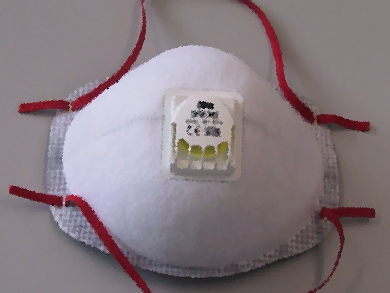Air pollution is a growing problem in densely populated areas, and can have adverse health effects such as heart disease, cancer, or respiratory infections. In urban areas of China, for example, many people try to protect themselves by using particulate respirators, masks that filter out fine airborne particles. However, their prolonged use can lead to the accumulation of bacteria in the respirator.
Chiqian Zhang, University of Missouri, Columbia, USA, Xin Yu, Chinese Academy of Sciences, Xiamen, and colleagues have functionalized the surface of particulate respirators with silver nanoparticles to give them antimicrobial properties. The team used commercial respirators, which consist of hydrophobic polypropylene and polyester fibers. They made the fabric wettable by immersing it overnight in the surfactant sodium oleate. The fabric was then coated with silver nanoparticles by applying a silver nitrate solution and subsequent reduction with NaBH4.
The researchers tested the functionalized respirators for antimicrobial activity by covering cell cultures of Staphylococcus aureus and Pseudomonas aeruginosa with the modified fabric. The samples containing silver nanoparticles effectively inhibited bacterial growth. The team hopes that this approach can provide protection against airborne pathogens in regions with severe air pollution.
- Particulate Respirators Functionalized with Silver Nanoparticles Showed Excellent Real-Time Antimicrobial Effects against Pathogens,
Clark Renjun Zheng, Shuai Li, Chengsong Ye, Xinyang Li, Chiqian Zhang, Xin Yu,
Environ. Sci. Technol. 2016.
DOI: 10.1021/acs.est.6b00788




